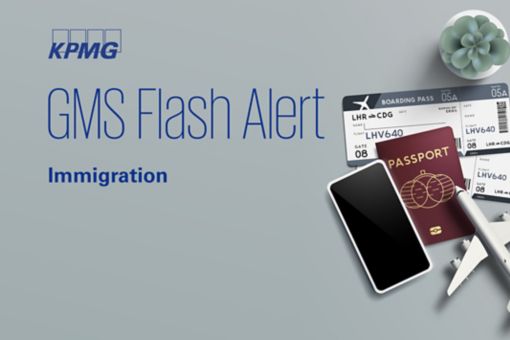Czech Republic – COVID-19: Entry Conditions Mitigated under New “Traffic Lights” Rules
Czechia–New “Traffic Lights” Mitigate Entry Conditions
The Czech Republic’s Ministry of Health issued a new protective measure effective from Monday, 15 June 2020, replacing previous regulations on the crossing of Czech borders. This measure called "traffic lights" further lifts the restrictions on the conditions for travelling abroad and re-entering the Czech Republic for both Czech citizens and certain foreign nationals. The traffic lights measure divides the EU/Schengen area into three groups – green (low-risk), orange (medium-risk) and red (high-risk).

The Czech Republic’s Ministry of Health issued a new protective measure effective from Monday, 15 June 2020, replacing previous regulations on the crossing of Czech borders. This measure called "traffic lights," owing to its visual similarity to traffic lights, further lifts the restrictions on the conditions for travelling abroad and re-entering the Czech Republic for both Czech citizens and certain foreign nationals. (For prior coverage, see GMS Flash Alert 2020-226, 12 May 2020.)
The rule is applicable for persons travelling from other European Union (EU)/Schengen countries and exempts some of them (more below) from the obligation of having a negative PCR test or undergoing quarantine. Travellers from non-EU countries are still forbidden to enter the Czech Republic, unless they fit in one of the existing exemptions and comply with the regulations set for entry to the Czech Republic.
The traffic lights measure divides the EU/Schengen area into three groups1 – green (low-risk), orange (medium-risk) and red (high-risk) – based on the current status of COVID-19 epidemic in a given country.
WHY THIS MATTERS
The travel restrictions have had a considerable impact on travellers and employees moving between the Czech Republic and other countries.
The loosening of the rules that had limited cross-border travel and the restoration of some degree of international travel should be seen as encouraging signs for a gradual restoration of some freedom of movement as well as for businesses and their employees who undertake cross-border travel for business purposes. This is a hopeful development for the Czech Republic’s economy and for multinational organisations that are considering plans to bring/send foreign employees into/to the Czech Republic as well as sending Czech employees overseas.
Low-Risk Countries
Persons who may travel to the Czech Republic without a need to undergo the PCR test or quarantine are:
- Czech citizens;
- Foreign nationals with temporary/permanent residence in the Czech Republic longer than 90 days;
- EU/Schengen Area citizens with permanent or temporary residence in these countries and their family members; and
- Third-country nationals with the status of long-term resident of an EU/Schengen Area country and their family members.
For other persons, the former rules of entry continue to apply (i.e., they may only arrive/enter under some of the existing exceptions permitted by the relevant regulation).2
Medium-Risk Countries
Persons who may travel to the Czech Republic without a need to undergo the PCR test or quarantine are:
- Czech citizens;
- Foreign nationals with temporary/permanent residence in the Czech Republic longer than 90 days.
For other persons, the former rules of entry remain applicable.
High-Risk Countries
Only Czech citizens and foreign nationals with permanent or temporary residence in the Czech Republic longer than 90 days may arrive/enter in the Czech Republic from these countries while being obligated to undergo the PCR test or a 14-day quarantine.
For other persons, the former rules of entry remain applicable.
KPMG NOTE
The list of countries in individual groups is regularly updated based on the given situation. Currently, Sweden, Portugal, and Silesian Voivodeship in Poland are considered as high-risk countries or areas. Belgium and the United Kingdom are medium-risk countries. All other EU and Schengen countries are considered low-risk.
Due to the positive development in the COVID-19 epidemic in the Czech Republic the entry restrictions will have an impact on business travellers and tourists.
FOOTNOTES
1 See (in Czech) Seznam evropských zemí podle míry rizika nákazy (List of European countries by disease risk level) from the Ministerstvo zdravotnictví ČR (Ministry of Health of the Czech Republic).
2 See (in Czech) Ochranné Opatření (PDF 321 KB) (Protective Measures) from the Ministerstvo zdravotnictví ČR (Ministry of Health of the Czech Republic).
VIEW ALL
Please note the KPMG International member firm in the United States does not provide immigration or labour law services. However, KPMG Law LLP in Canada can assist clients with U.S. immigration matters.
The information contained in this newsletter was submitted by the KPMG International member firm in the Czech Republic.
SUBSCRIBE
To subscribe to GMS Flash Alert, fill out the subscription form.
© 2024 KPMG Česká republika, s.r.o., společnost s ručením omezeným založená dle právních předpisů České republiky a členská společnost globální organizace nezávislých členských společností KPMG, přidružených ke KPMG International Limited, soukromé anglické společnosti s ručením omezeným. Všechna práva vyhrazena.
Detailní informace o struktuře globální organizace KPMG najdete na stránce: https://kpmg.com/governance.
GMS Flash Alert is a Global Mobility Services publication of the KPMG LLP Washington National Tax practice. The KPMG name and logo are trademarks used under license by the independent member firms of the KPMG global organization. KPMG International Limited is a private English company limited by guarantee and does not provide services to clients. No member firm has any authority to obligate or bind KPMG International or any other member firm vis-à-vis third parties, nor does KPMG International have any such authority to obligate or bind any member firm. The information contained herein is of a general nature and is not intended to address the circumstances of any particular individual or entity. Although we endeavor to provide accurate and timely information, there can be no guarantee that such information is accurate as of the date it is received or that it will continue to be accurate in the future. No one should act on such information without appropriate professional advice after a thorough examination of the particular situation.
